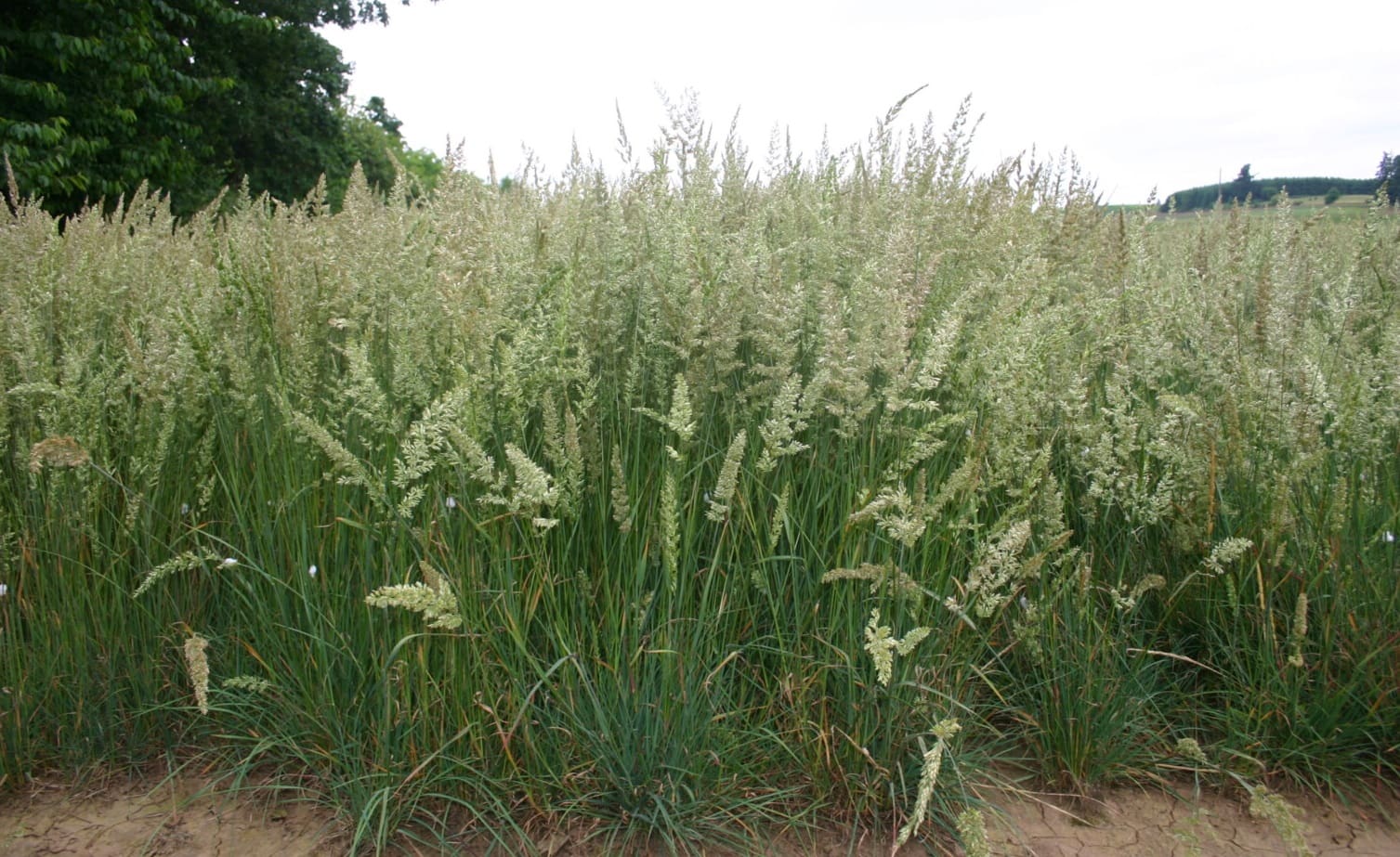Home>Gardening & Outdoor>Landscaping Ideas>How Long Do Grass Allergies Last


Landscaping Ideas
How Long Do Grass Allergies Last
Modified: August 17, 2024
Learn how to manage grass allergies and enjoy your landscaping with these effective ideas. Discover how long grass allergies typically last.
(Many of the links in this article redirect to a specific reviewed product. Your purchase of these products through affiliate links helps to generate commission for Storables.com, at no extra cost. Learn more)
Introduction
Grass allergies, also known as hay fever or allergic rhinitis, affect millions of people worldwide. As the seasons change and nature comes to life, many individuals find themselves grappling with the uncomfortable symptoms of grass allergies. The impact of these allergies can be disruptive, affecting daily activities and diminishing overall quality of life. Understanding the nature of grass allergies, including their symptoms and duration, is crucial for effectively managing and mitigating their effects.
In this comprehensive guide, we will delve into the intricacies of grass allergies, shedding light on their duration, symptoms, and management strategies. Whether you are a seasoned allergy sufferer or simply seeking to expand your knowledge on this common ailment, this article will provide valuable insights and practical tips to navigate the challenges posed by grass allergies. Let's embark on a journey to unravel the mysteries of grass allergies and equip ourselves with the knowledge to combat their impact effectively.
Key Takeaways:
- Grass allergies, caused by immune response to grass pollen, can lead to discomfort. Understanding symptoms and duration empowers individuals to manage their impact effectively.
- Managing grass allergies involves avoidance, medication, and lifestyle adjustments. By implementing targeted strategies, individuals can mitigate the impact and enhance their well-being.
Read more: How Long Will Artificial Grass Last
Understanding Grass Allergies
Grass allergies stem from the body’s immune response to specific proteins found in grass pollen. When individuals with grass allergies come into contact with these allergens, their immune system perceives them as harmful invaders and triggers an immune response. This response leads to the release of histamines and other chemicals, causing the classic symptoms associated with hay fever.
The most common grass allergens include proteins from Bermuda grass, Timothy grass, Johnson grass, and Kentucky bluegrass. These allergens are released into the air during the grass pollen season, typically in late spring and early summer, when grasses are in full bloom. As a result, individuals sensitive to these allergens may experience heightened symptoms during this period.
It’s important to note that grass allergies can vary in severity from mild to severe, depending on an individual’s immune system and the specific allergens to which they are exposed. While some people may experience minor discomfort, others may face more debilitating symptoms that significantly impact their daily lives.
Understanding the underlying mechanisms of grass allergies empowers individuals to take proactive measures to minimize their exposure to grass pollen and alleviate the associated symptoms. By gaining insight into the triggers and physiological processes involved in grass allergies, individuals can make informed decisions to effectively manage their condition and improve their overall well-being.
Symptoms of Grass Allergies
Grass allergies can manifest in a variety of symptoms, ranging from mild discomfort to more pronounced respiratory and systemic effects. Common symptoms of grass allergies include:
- Nasal Symptoms: Individuals with grass allergies often experience a runny or congested nose, frequent sneezing, and itching in the nasal passages. This can lead to nasal congestion, postnasal drip, and a diminished sense of smell.
- Ocular Symptoms: Allergic reactions to grass pollen can cause red, watery, and itchy eyes, often accompanied by swelling and a sensation of grittiness in the eyes.
- Respiratory Symptoms: Grass allergies may trigger respiratory issues such as coughing, wheezing, chest tightness, and shortness of breath, particularly in individuals with underlying respiratory conditions like asthma.
- Throat Irritation: Sore throat, itching, and irritation in the throat are common symptoms of grass allergies, often resulting from postnasal drip and inflammation of the throat tissues.
- Generalized Symptoms: Some individuals may experience systemic effects such as fatigue, irritability, and disrupted sleep patterns due to the discomfort caused by grass allergies.
It’s important to recognize that the severity and combination of symptoms can vary among individuals. While some may experience mild nasal congestion and occasional sneezing, others may endure more debilitating symptoms that interfere with their daily activities and overall well-being.
Moreover, prolonged exposure to grass pollen can exacerbate these symptoms, leading to chronic discomfort and reduced quality of life. By identifying and understanding the range of symptoms associated with grass allergies, individuals can seek appropriate medical guidance and adopt targeted strategies to alleviate their specific symptoms and enhance their overall comfort.
Grass allergies can last throughout the grass pollen season, which is typically from late spring to early fall. To manage symptoms, try over-the-counter antihistamines and avoid spending time outdoors during peak pollen times.
Duration of Grass Allergies
The duration of grass allergies can vary depending on several factors, including the individual’s sensitivity to grass pollen, the prevailing environmental conditions, and the effectiveness of management strategies. Generally, the grass pollen season spans from late spring to early summer, coinciding with the peak growth and pollination of grasses. During this period, individuals with grass allergies are more likely to experience heightened symptoms due to increased pollen levels in the air.
For some individuals, grass allergies may persist throughout the entire grass pollen season, which typically lasts several weeks. However, the duration of symptoms can extend beyond this period if the individual is exposed to other allergens or if environmental factors prolong the dispersal of grass pollen.
It’s essential to recognize that the duration of grass allergies is not solely confined to the pollen season. In some cases, individuals may experience symptoms before the onset of the season as the grasses begin to pollinate, and residual symptoms may linger after the season as pollen levels gradually diminish.
Furthermore, the persistence of grass allergy symptoms can be influenced by geographical factors, as the timing and duration of the grass pollen season vary across different regions. Individuals residing in areas with prolonged or overlapping grass pollen seasons may face an extended period of allergen exposure and associated symptoms.
Effective management of grass allergies, including allergen avoidance, medication, and allergen immunotherapy, can significantly impact the duration and severity of symptoms. By implementing proactive measures to reduce allergen exposure and seeking appropriate medical interventions, individuals can mitigate the impact of grass allergies and potentially shorten the duration of their symptoms.
Understanding the potential duration of grass allergies empowers individuals to anticipate and prepare for the challenges posed by the pollen season, enabling them to take proactive steps to manage their symptoms and minimize their impact on daily life.
Managing Grass Allergies
Effectively managing grass allergies involves a multifaceted approach that encompasses allergen avoidance, medication, and lifestyle adjustments. By implementing targeted strategies, individuals can mitigate the impact of grass allergies and enhance their overall well-being during the grass pollen season and beyond.
Allergen Avoidance: Minimizing exposure to grass pollen is a fundamental aspect of managing grass allergies. This can be achieved by staying indoors during peak pollen times, using air purifiers with HEPA filters, keeping windows closed, and avoiding activities that may stir up pollen, such as mowing the lawn or spending extended periods in grassy areas.
Medication: Over-the-counter antihistamines, nasal corticosteroids, and decongestants can provide relief from the symptoms of grass allergies. Additionally, prescription medications, such as allergy shots (immunotherapy) or oral immunotherapy tablets, may be recommended for individuals with severe or persistent grass allergies to desensitize their immune response to grass pollen.
Nasal Irrigation: Nasal irrigation with saline solutions can help alleviate nasal congestion and reduce the presence of allergens in the nasal passages, providing symptomatic relief for individuals with grass allergies.
Personal Protection: Wearing sunglasses to shield the eyes from pollen, using pollen-filtering masks when engaging in outdoor activities, and showering and changing clothes after spending time outdoors can minimize the accumulation of pollen on the body and reduce allergen exposure.
Consultation with Healthcare Providers: Seeking guidance from allergists or immunologists can aid in the development of personalized management plans tailored to individual needs. Healthcare providers can offer insights into effective medication regimens, allergen avoidance strategies, and potential immunotherapy options to address grass allergies comprehensively.
Lifestyle Adjustments: Making adjustments to daily routines, such as planning outdoor activities during periods of lower pollen counts, choosing pollen-minimizing landscaping options, and monitoring pollen forecasts, can contribute to reducing allergen exposure and managing symptoms effectively.
By incorporating these strategies into their daily lives, individuals can navigate the challenges posed by grass allergies with greater resilience and comfort. Proactive management of grass allergies not only alleviates immediate symptoms but also fosters a proactive approach to long-term allergy control and overall well-being.
Read more: How Long Will Rye Grass Last
Conclusion
Grass allergies, characterized by the body’s immune response to grass pollen, can significantly impact individuals’ quality of life, particularly during the peak grass pollen season. By understanding the nature of grass allergies, including their symptoms, duration, and management strategies, individuals can empower themselves to effectively navigate the challenges posed by these allergies and minimize their impact on daily activities and overall well-being.
Recognizing the diverse array of symptoms associated with grass allergies, from nasal and ocular discomfort to respiratory issues and systemic effects, underscores the importance of tailored management approaches that address individual needs and preferences. Furthermore, gaining insight into the duration of grass allergies and the factors influencing their persistence enables individuals to anticipate and prepare for the challenges posed by the grass pollen season, fostering a proactive and informed approach to managing their symptoms.
Effective management of grass allergies encompasses allergen avoidance, medication, personal protection, and lifestyle adjustments. By implementing these strategies, individuals can mitigate allergen exposure, alleviate symptoms, and enhance their overall well-being, thereby fostering a proactive and resilient approach to long-term allergy control.
As individuals seek to navigate the complexities of grass allergies, consultation with healthcare providers, including allergists and immunologists, can provide invaluable guidance and support in developing personalized management plans tailored to individual needs. By harnessing the expertise of healthcare professionals and leveraging targeted interventions, individuals can optimize their ability to manage grass allergies effectively and enhance their quality of life.
In conclusion, a comprehensive understanding of grass allergies, coupled with proactive management strategies, equips individuals with the knowledge and tools to navigate the challenges posed by these allergies with resilience and comfort. By fostering a proactive and informed approach to managing grass allergies, individuals can reclaim control over their well-being and embrace the beauty of the natural world with greater ease and comfort.
Frequently Asked Questions about How Long Do Grass Allergies Last
Was this page helpful?
At Storables.com, we guarantee accurate and reliable information. Our content, validated by Expert Board Contributors, is crafted following stringent Editorial Policies. We're committed to providing you with well-researched, expert-backed insights for all your informational needs.















0 thoughts on “How Long Do Grass Allergies Last”